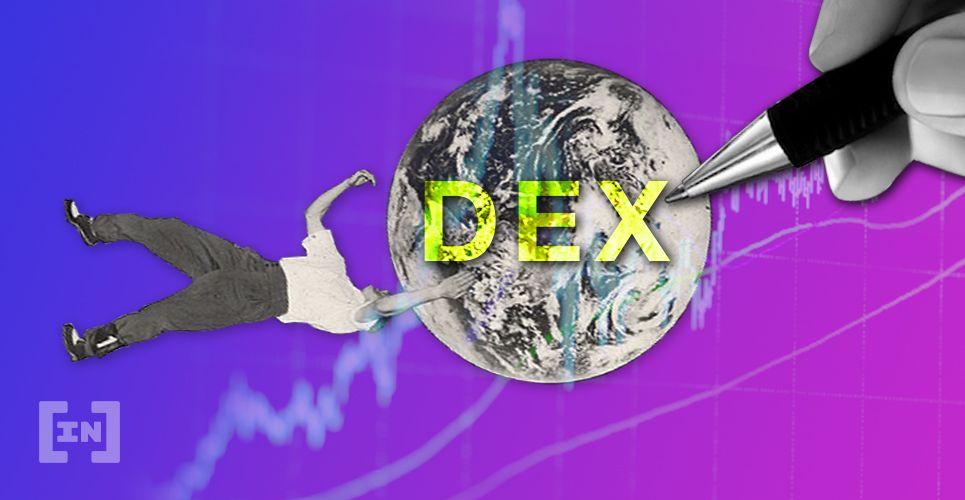U.S. stocks suspended trading for 15 minutes after the S&P 500 plunged a historically rare 7.6%. [CNBC] The suspension follows the halting of Kuwait’s Premier Trade, which experienced a similar plunge. As markets around the world tumble, cryptocurrencies have also faced a wipe-out, but the stock markets show the degree to which centralization plagues them.
In what has been a horrifically rough week for the global economy, the S&P 500 index fell by 7.6%, its seventh largest drop since World War II. Similarly, the Dow Jones Industrial Average dropped by more than 2,000 points, its worst day since the 2008 financial crisis.
The bloodbath resulted in U.S. stock markets halting trades for 15 minutes. [NPR] The move followed the Kuwait Premier Index’s halting of trades just 15 minutes into the session after it dropped by about 10%. [The National] The Middle Eastern region is currently in the midst of an oil price war, with an OPEC disagreement about production resulting in the lowering of prices. European and Japanese markets have also been hit hard. Although oil prices have bounced back, the general sentiment is one of pessimism.BREAKING: U.S. stocks resume after 15-minute halt; Dow extends drop to more than 1,900 points, S&P 500 drops more than 7.2% https://t.co/RCpsAOBl6g pic.twitter.com/okm5BkWlf3
— CNBC Now (@CNBCnow) March 9, 2020
Problems Abound in Centralized Systems
Several in the crypto community have pointed to these decisions to stop trading as behavior that highlights centralization. It is not that the cryptocurrency market does not face such problems – exchanges can and have stopped trading when they have encountered issues, at the cost of investors. [Business Insider] But it must be said that, unlike centralized systems, the cryptocurrency market is actively working on truly decentralized solutions, such as decentralized exchanges (DEXs). The decision to halt trading is nothing disingenuous – after all, it makes sense to stop people from letting emotions take over and let the market stabilize. Trading is halted in order to prevent people from selling out of hysteria and causing flash crashes by everyone’s stop losses being triggered. However, in traditional markets, investors are more at the mercy of centralized parties and stand to lose more from associated risks.
That’s not to say that the cryptocurrency market does not have its own set of issues, but it is worth bearing in mind.
One strong example of the centralization issue is the Dole Case, where the centralized ownership system resulted in payout issues and in the company thinking it had 12 million more shares than it actually had. [The New York Times] Shareholders actually thought that they held more shares than actually existed. Blockchain technology was even a part of the discussion in court. The centralized system makes people think that they own shares, but they don’t in the truest sense. But in a decentralized system, everyone is the true owner of their assets.
The decision to halt trading is nothing disingenuous – after all, it makes sense to stop people from letting emotions take over and let the market stabilize. Trading is halted in order to prevent people from selling out of hysteria and causing flash crashes by everyone’s stop losses being triggered. However, in traditional markets, investors are more at the mercy of centralized parties and stand to lose more from associated risks.
That’s not to say that the cryptocurrency market does not have its own set of issues, but it is worth bearing in mind.
One strong example of the centralization issue is the Dole Case, where the centralized ownership system resulted in payout issues and in the company thinking it had 12 million more shares than it actually had. [The New York Times] Shareholders actually thought that they held more shares than actually existed. Blockchain technology was even a part of the discussion in court. The centralized system makes people think that they own shares, but they don’t in the truest sense. But in a decentralized system, everyone is the true owner of their assets.
Over $40 Billion Wiped Out from the Crypto Market
The crypto market, which is generally viewed as being completely uncorrelated to factors that drive traditional markets, has also been seeing red. The market cap dropped from about $264 billion to $219 billion between March 7 and March 9. Bitcoin has taken an enormous tumble from its 30-day high of $10,457 – a figure so recent and large that it buoyed investors’ hopes of a bull run. Altcoins have it just as bad, if not worse. Investors had been hoping that the market was on the verge of an extended bull run. Bitcoin’s halving is around the corner (which reduces miners’ rewards, driving prices up through lower supplies), and institutional investment has been growing. There is no way to tell how much geopolitical circumstances are driving the market sell-off. The lack of correlation had convinced some that cryptocurrencies would be a safe haven in times of global economic crisis, but it appears that cryptocurrencies are yet to achieve that level of maturity.Disclaimer
In adherence to the Trust Project guidelines, BeInCrypto is committed to unbiased, transparent reporting. This news article aims to provide accurate, timely information. However, readers are advised to verify facts independently and consult with a professional before making any decisions based on this content. Please note that our Terms and Conditions, Privacy Policy, and Disclaimers have been updated.

Rahul Nambiampurath
Rahul Nambiampurath's cryptocurrency journey first began in 2014 when he stumbled upon Satoshi's Bitcoin whitepaper. With a bachelor's degree in Commerce and an MBA in Finance from Sikkim Manipal University, he was among the few that first recognized the sheer untapped potential of decentralized technologies. Since then, he has helped DeFi platforms like Balancer and Sidus Heroes — a web3 metaverse — as well as CEXs like Bitso (Mexico's biggest) and Overbit to reach new heights with his...
Rahul Nambiampurath's cryptocurrency journey first began in 2014 when he stumbled upon Satoshi's Bitcoin whitepaper. With a bachelor's degree in Commerce and an MBA in Finance from Sikkim Manipal University, he was among the few that first recognized the sheer untapped potential of decentralized technologies. Since then, he has helped DeFi platforms like Balancer and Sidus Heroes — a web3 metaverse — as well as CEXs like Bitso (Mexico's biggest) and Overbit to reach new heights with his...
READ FULL BIO
Sponsored
Sponsored
